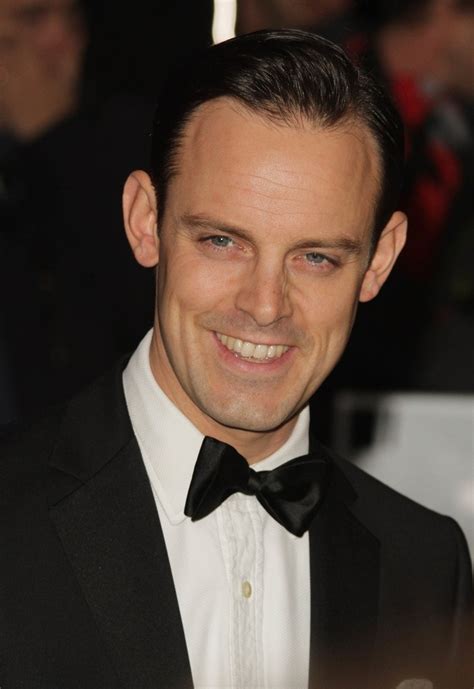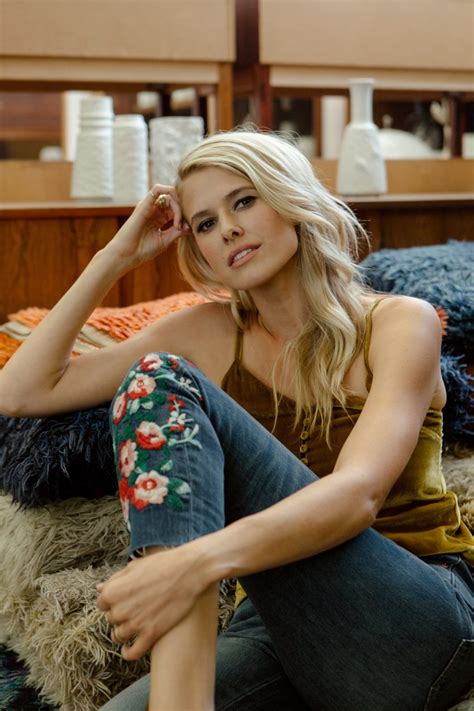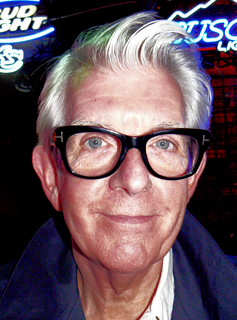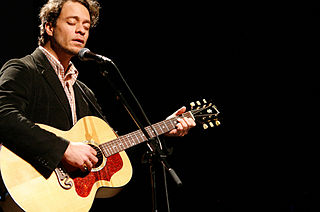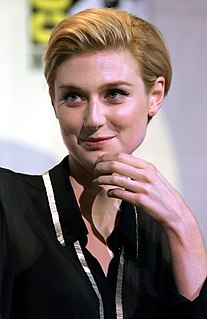A Quote by Harry Hadden-Paton
I remember going to see 'Starlight Express' almost every birthday I had as a treat because I just loved it, and the idea that you could rollerskate in a sort of scary old theatre... It was sort of a novel concept.
Related Quotes
And religious music and the sort of symbolism of it and everything. But I had this idea. Actually, I sort of dreamt it. I woke up - just before waking up one morning, I sort of dreamt this song or the idea of it and the first little bit of it. And I jumped out of bed and I thought, well, you're still asleep. You're going to forget this in a minute - you know, like you do when you've had a dream.
You write a character, but in essence, it's just a concept of what it could be, and then actors come in and they have their own sort of interpretations and thoughts. If you respond to those and then go forward with them, then it's kind of like magic to see the idea you had become alive and in the flesh.
The graphic novel? I love comics and so, yes. I don't think we talked about that. We weren't influenced necessarily by graphic novels but we certainly, once the screenplay was done, we talked about the idea that you could continue, you could tell back story, you could do things in sort of a graphic novel world just because we kind of like that world.
I could draw ideas. I remember writing a paper for a seminar class. I remember writing a paper about - and this is going to sound really sort of pretentious, but that's where my mind was at the time - how acting and the performing artist can really be like a Bodhisattva, how they can communicate ultimately an idea in a way that can move and shift things. And that was wonderful. I didn't know many classes where I could try and relate the thing that I really loved and wanted to do into an intellectual idea, and that happened to be one of them.
In the course of my movies, the financing and the releasing were always the tough part. Because I loved the creative, I loved the writing, I loved the making of it. Because I guess, I never had the giant blockbuster, I never got that sort of ease for the next one. So the next one was always, "how am I going to do this?" And that thing was sort of always the thing that made me a little chickenshit to go into the next one. The writing of it was great and the making of it was great, but how am I going to release this thing and am I going to find a studio?
It [going from mini-series to series] was never even discussed because it [The Starter Wife] was, you know, an adaptation of a novel. And we - the mini-series encompassed the whole novel. And so it was always going to be a finite sort of event. And then I imagine when people started to really respond to the show and then we got ten Emmy nominations, USA sort of said, "Oh, I think maybe we have something here."
If you're a novelist, you have sort of themes that run throughout novels. You start a novel and you finish a novel. With record-making in the singer-songwriter world or whatever it is that I do, it's a little different because there is no specific arc that is necessarily, like it's not a concept record.
At the beggining of my career, for me the comedy circuit was a combination of desperation and the fact that it was something I could do. I sort of meandered and really had no idea what I was going to do with my life. I had a go at stand-up, and I was sort of okay at it. I'd say I'm the opposite of someone that has the urge to stand in front of strangers and make them laugh, but the idea of getting up and telling a story and people finding it amusing always appealed to me. So I'd say it was probably more about that than anything.
